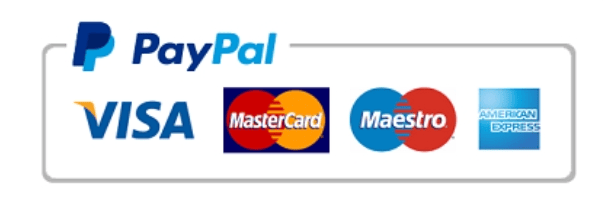Filipino Freelancers: Rising Demands, Strengths, and Challenges
Since the late 1990s and early 2000s, Filipino freelancers have steadily made a mark in the online world. In those early days, the number of Filipino freelancers was limited, navigating internet-based work with few remote opportunities and limited digital tools. Today, however, Filipino freelancers have become a significant presence in the global gig economy, attracting clients worldwide with their talent, dedication, and adaptability. As demand grows, so do cases of exploitation, casting a shadow over their valuable contributions.
Why Demand for Filipino Freelancers is Rising
1. Proficiency in English
One of the major strengths of Filipino freelancers is their command of the English language, an official and widely used language in the Philippines. This proficiency allows them to communicate effectively with clients from English-speaking countries, reducing misunderstandings and making collaboration smoother. For clients, this is invaluable, as it enhances productivity and efficiency.
Building English Proficiency: A Historical Advantage
Philippines is considered an ESL country due to its unique linguistic history and the extensive use of English in education, media, and business. Introduced during the American colonial period, English quickly became embedded in the Philippine education system and remains a primary language of instruction. Combined with the Philippine government’s continued emphasis on English proficiency, this foundation prepares Filipinos for global competitiveness. Many Filipinos are now bilingual or fluent in English, thriving in industries like Business Process Outsourcing (BPO) and freelancing, where demand for English speakers is high.
Beyond education, English is common in Philippine media, government, and daily interactions. Urban Filipinos frequently blend Filipino and English (known as “Taglish”) in conversation, which strengthens English as an essential second language. The Philippines has even developed a robust ESL industry, drawing students from neighboring Asian countries who come to learn English from Filipino teachers. These historical, educational, and economic factors combined have made the Philippines one of the leading English-speaking nations in Asia.
2. Cultural Adaptability
With significant Western influence shaping much of the Filipino educational and social landscape, Filipino freelancers often have a natural adaptability to various work cultures. This ability to integrate smoothly makes them a desirable choice for businesses in need of versatile professionals who can adjust to different cultural norms and work styles.
3. Exceptional Work Ethic
Filipino freelancers are known for their commitment to quality and reliability, often going above and beyond to meet or exceed client expectations. This strong work ethic has helped them build a reputation for dependability, which keeps clients returning and drives referrals for future projects.
4. Diverse Skill Sets
Filipino freelancers bring a versatile range of skills, from graphic design and web development to content writing and virtual assistance. This flexibility allows them to meet diverse client needs across various industries, making them an attractive option for clients seeking comprehensive support.
5. Cost-Effective Solutions
The lower cost of living in the Philippines allows Filipino freelancers to offer competitive rates without compromising on quality. This balance of affordability and high standards of service is especially appealing to startups and small businesses working with limited budgets.
Challenges Facing Filipino Freelancers
Despite the value they bring to the global market, Filipino freelancers often encounter challenges that can leave them vulnerable to exploitation. Here are some of the issues they face in the industry:
1. Lack of Legal Protection
Freelancers in the Philippines do not receive the same legal protections as traditional employees, meaning they may not have access to benefits like minimum wage, healthcare, or retirement plans. Without these safeguards, many freelancers find themselves accepting less-than-ideal terms to secure consistent work.
2. Pressure to Accept Low Wages
In an increasingly competitive market, Filipino freelancers may feel pressured to lower their rates to win projects, knowing that other freelancers might be willing to work for less. This cycle can lead to underpayment, with skilled professionals working for rates that don’t reflect their true value.
3. Ambiguous Contracts
Contracts with clients can sometimes be vague, failing to clearly outline expectations and compensation for additional work. Many freelancers experience “scope creep” in these situations, where they’re expected to complete tasks beyond the original agreement without added pay.
4. Risk of Burnout
To ensure steady income, Filipino freelancers often juggle multiple projects. Without boundaries or structured time off, this can lead to burnout, affecting both their health and the quality of their work. In such a competitive field, freelancers may find it difficult to say no to client demands.
5. Isolation and Lack of Support Networks
Freelancers generally work independently, often without access to the support networks that employees in traditional roles might have. This isolation can make it harder to raise concerns about unfair treatment or find resources to better manage their work.
Towards a Fairer Freelance Ecosystem
To protect Filipino freelancers and promote sustainable freelancing, the following steps could make a meaningful impact:
1. Establishing Clear Regulations
Implementing legal protections for freelancers in the Philippines, such as minimum pay standards and contract requirements, would help level the playing field. Clearer guidelines for resolving disputes would also give freelancers better recourse when dealing with unfair treatment.
2. Encouraging Fair Pricing
Greater awareness of fair pricing standards would benefit both freelancers and clients. When freelancers understand their worth and clients recognize the value of quality work, it supports healthier working relationships and fairer compensation.
3. Building Freelancer Communities
Support networks where freelancers can exchange advice, find resources, and seek mentorship could empower Filipino freelancers. Such communities would offer freelancers a sense of solidarity and a platform for advocacy.
4. Providing Educational Resources
Educating freelancers about contract negotiation, financial planning, and market trends would help them make more informed decisions. Access to these resources would empower them to avoid exploitative situations and better manage their careers.
5. Promoting Ethical Client Practices
Clients who understand the importance of fair treatment foster stronger, long-term partnerships with freelancers. Ethical practices help create a more productive and positive work environment, benefiting both parties.
Filipino freelancers have become an invaluable asset to the global gig economy, consistently delivering high-quality work and adapting to diverse client needs. However, as their role grows, so does the need for protection against exploitative practices. Addressing these challenges is essential to creating a fairer, more sustainable freelance ecosystem—one in which Filipino freelancers can continue to thrive, knowing their skills and contributions are respected and valued.




